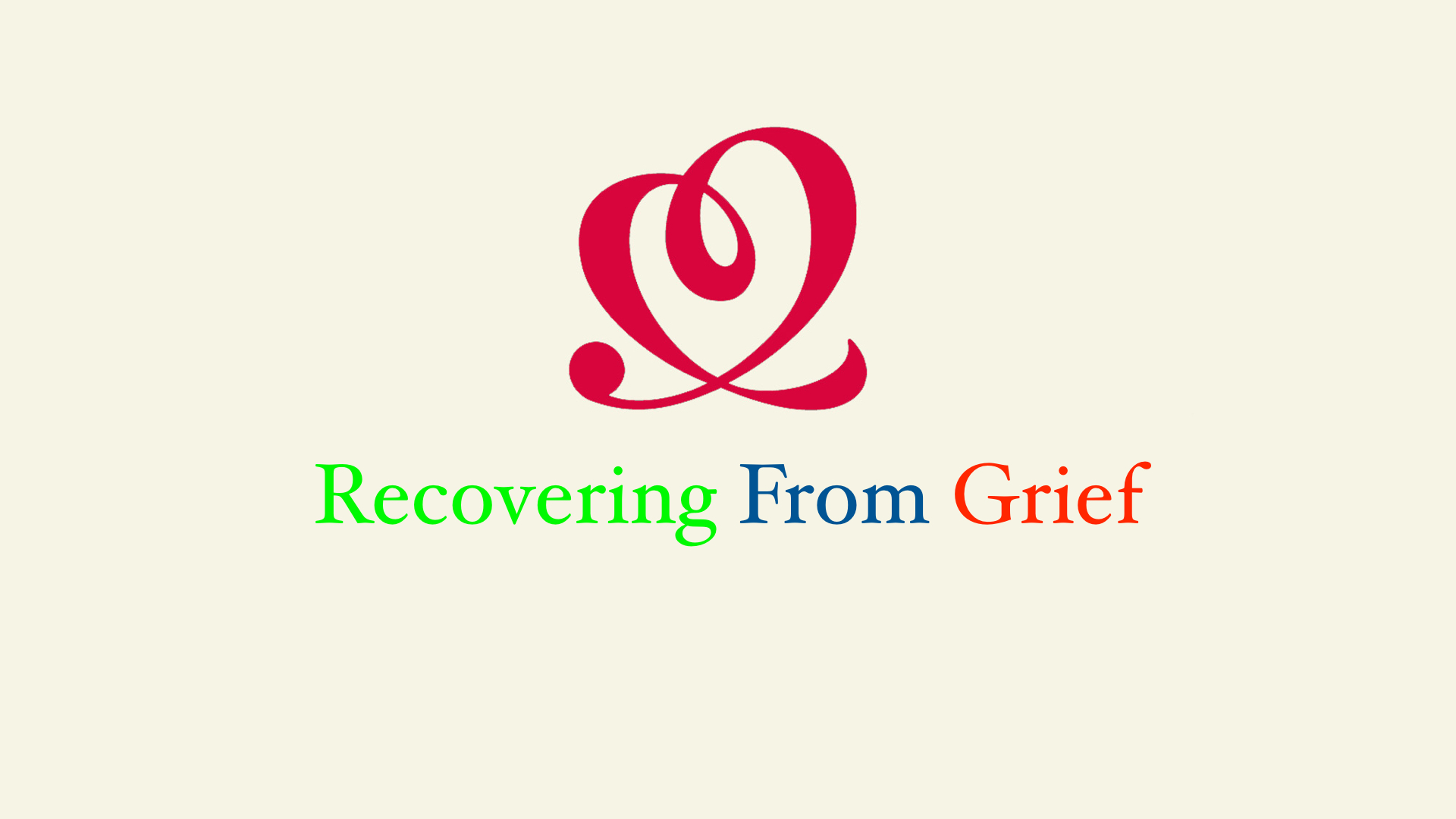Recovering From Grief
The human capacity for grief is at times overwhelming! Time and again this year I have been face to face with people who are suffering deep grief. In the past ten months I am aware of at least 10 ladies who husbands have passed away. Others have suffered the loss a son or daughter or parent. Many are asking the question, “Will this ever get better?”
Recently I read an article written by June Hunt entitled, “Grief Recovery, Living At Peace With Loss.” I share a portion of it here in hopes that it if you are grieving the loss of someone you loved, that you will find hope and comfort:
“Who has not questioned the reason for pain and suffering in the world? Certainly some people have become hardened by their losses, while others have become softened—God used their grief to cultivate in them tender, understanding hearts. Only days before His own death, Jesus traveled to the grave of Lazarus to comfort his two sisters in their loss. Jesus was not only deeply moved in His Spirit, but He was also weeping with Mary and Martha. It may seem paradoxical that Jesus—the Son of God, the one who turned water into wine, the one who multiplied the loaves and the fishes, the one who raised Lazarus from the dead—could not avoid grief in His own life. But the prophet Isaiah foretold that Christ, the coming Messiah, would be a man who would understand grief well for, indeed, He was … “A Man of sorrows and acquainted with grief.” (Isaiah 53:3)
What Is Grief?
- Grief is the painful emotion of sorrow caused by the loss or impending loss of anyone or anything that has deep meaning to you. “Be merciful to me, O Lord, for I am in distress; my eyes grow weak with sorrow, my soul and my body with grief.” (Psalm 31:9)
- Grief begins in your heart as a natural response to a significant, unwanted loss.
- Grief is a God-given emotion that increases with knowledge about the sorrows of life. The wiser you are about the grief that people experience, the more you yourself will grieve. “With much wisdom comes much sorrow; the more knowledge, the more grief.” (Ecclesiastes 1:18)
- In the New Testament, the Greek word lupe means “pain of body or mind. ”When Jesus told His disciples He would soon be betrayed and killed, they were filled with grief. The disciples were filled with grief.” (Matthew 17:23)
What Is Mourning?
- Mourning is the process of working through the pain of sorrow that follows a significant loss. “Joy is gone from our hearts; our dancing has turned to mourning.” (Lamentations 5:15)
- Mourning (also called grieving), is a normal, healthy process that lasts for a period of time. God uses mourning in order to produce the ultimate healing of deep distress and sorrow. “You turned my wailing into dancing; you removed my sackcloth and clothed me with joy.” (Psalm 30:11)
- Mourning evokes compassion and expressions of comfort from others. When Lazarus died, Jesus and many others came to comfort Mary and Martha. “Many Jews had come to Martha and Mary to comfort them in the loss of their brother.” (John 11:19)
- In the Old Testament, the Hebrew word abal means “to mourn or lament. ”Jacob’s favorite son was Joseph. When Joseph’s brothers told their father, Jacob, that his favored son had been killed by a ferocious animal, Jacob went into deep mourning for days … and ultimately years.
“Jacob tore his clothes, put on sackcloth and mourned for his son many days.” (Genesis 37:34)
What Are the Stages of Healthy Grieving?
Emotional complications occur when we block the natural process of grieving. Have you ever told yourself, I need to get my act together. I’ve got to snap out of it. I should be handling this better!
These self-incriminating thoughts reveal unrealistic expectations about grieving and a failure to understand the grief process and the slow journey of restoration. While “stages” of grief do exist, they are not “stair-step” stages that you walk through in a specific order. In truth, people do not go through all the stages in a predictable fashion. People are unique in their individual grieving. Some stages may be experienced with varying degrees of intensity, some may be missed, and some stages may be repeated.
Give yourself permission to experience the inconsistent stages of grieving … trusting God to bring new life again. “Though you have made me see troubles, many and bitter, you will restore my life again; from the depths of the earth you will again bring me up.” (Psalm 71:20)
Crisis Stage
… can last from two days to two weeks. In this stage of grief, you are mechanically going through daily activities. You will experience many of the following characteristics:
- anxiety/fear
- appetite/sleep loss
- concentration limited
- confusion
- crying uncontrollably
- denial
- disturbing dreams
- exhaustion
- feeling trapped
- shock/numbness
“My eyes will flow unceasingly, without relief.” (Lamentations 3:49)
Crucible Stage
… can last up to a year or two or more, perhaps even until death if grief is not resolved. This time of sorrow will be accompanied by many of the following characteristics:
- anger/resentment
- anguish
- appetite/sleep loss
- bargaining with God
- depression/sadness
- guilt/false guilt
- helplessness/lethargy
- judgment impaired
- loneliness/isolation
- low self-worth
- self-pity/victim mentality
- intense yearning
“My soul is in anguish. How long, O Lord, how long?” (Psalm 6:3)
Contentment Stage
… accepts the loss, leaving it in the past. This stage not only accepts that the present offers stability, but also accepts that the future offers new and promising hope. As this time approaches, the following characteristics will become more and more apparent.
- experiencing greater compassion toward others
- experiencing greater acceptance of others
- experiencing greater appreciation of others
- experiencing greater humility before others
- experiencing greater dependence on the Lord
- experiencing new ability to leave the loss behind
- experiencing new patterns for living
- experiencing new purpose in life
- experiencing new hope for the future
- experiencing new contentment in all circumstances
“One thing I do: Forgetting what is behind and straining toward what is ahead.… For I have learned to be content whatever the circumstances.” (Philippians 3:13; 4:11)
—–
If you are suffering through the stages of grief take comfort in the fact that you are not alone! God understands your grief, He loves you and will walk this path together with you.
If you are in the Kitwe area and you would like to discuss what you are facing right now, please get in touch with me on 0976153466 or email me at philhunt66@gmail.com. I would be happy to meet with you.
Blessings, Phil Hunt

